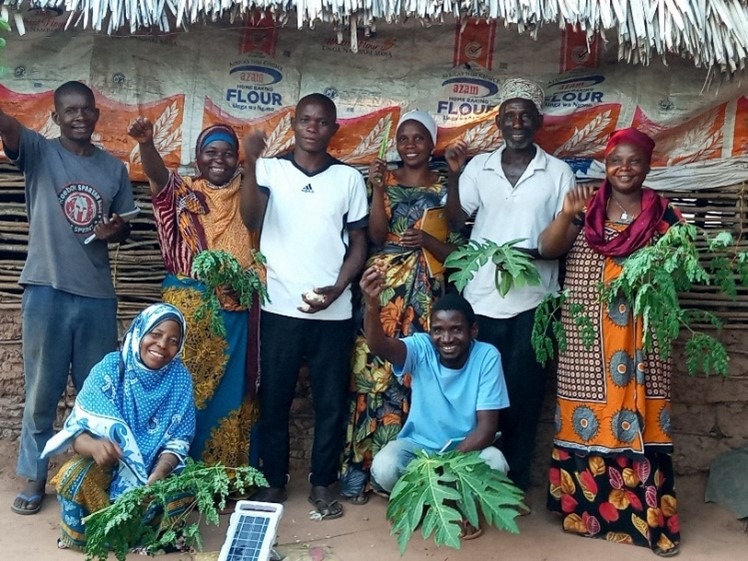Hunger and malnutrition are still widespread in parts of Africa and Asia. Global warming and dependence on agricultural products from multinational corporations are exacerbating the problem. CROPS4HD, a transversal project – in four countries and on two continents – is dedicated to rediscovering and publicising traditional local seeds. The aim is to improve the living conditions of people in the South.
Facts
Aims
The CROPS4HD project (Consumption of Resilient Orphan Crops & Products for Healthier Diets) responds to the call for proposals launched by the SDC ‘s Global Food Security Program and is prepared by the consortium consisting of SWISSAID, the Research Institute of Organic Agriculture (FiBL) and the Alliance for Food Sovereignty in Africa (AFSA). It has the following objectives:
- Make traditional crops and varieties more attractive by demonstrating their nutritional benefits
- Support family farmers to improve their farming techniques
- Strengthen farmers’ seed systems and protect their rights to disseminate, exchange and sell their own seed
“Our local seeds are our treasure and our heritage. We have to protect it,” explains Fatuma Suleimani Rashidi in front of the camera. The Tanzanian farmer took part in a SWISSAID project that has changed her view of the land she cultivates and the seeds she uses.
In the remote regions of Mtwara and Lindi in Tanzania, a quarter of the population lives below the poverty line. Despite expensive seeds and costly pesticides, farming families often lose the harvests they depend on to survive. A project carried out by SWISSAID in four countries aims to end the dangerous dependence of farmers on multinational corporations and to help them strengthen their resilience – without chemical aids or expensive seeds. To achieve this, the project is reviving traditional, local seeds that are often forgotten but are incredibly resilient and nutritious. These include varieties such as the Bambara peanut, African eggplant, African cabbage and amaranth, which are all rich in nutrients and characterized by good yields.

Better harvest, better health
In order to grow these seeds, the farmers are taught agroecological approaches. Fatuma has learned how to cultivate the land in an environmentally friendly and nature-enriching way. She has completed training in banana cultivation and learned a method that allows one fruit to produce 40 new seedlings. Now she has mastered new techniques for preserving seeds and can correctly estimate crop yields according to changing weather conditions. These methods have changed her life.
“The difference between conventional and organic farming is that conventional farming uses chemicals that are harmful to our health and pollute the land we rely on for our farming activities. Since I have been using natural products and we eat mainly organic food, my health and that of my children has improved significantly. We get sick less often and have fewer stomach problems,” says Fatuma.
The project proves that change is possible when we rely on traditional knowledge and innovative agricultural practices. It gives people hope again.
Diversified incomes, greater stability
Beyond agroecological cultivation, the CROPS4HD project supports initiatives that help farmers diversify their income. One such example is the Shangushangu Group, established in 2024 in Narunyu village, Lindi region. Alongside cultivating beans, peas, and maize, the group has also ventured into chicken farming.
To get started, the group received 100 chickens, 150kg of animal feed and the necessary vaccinations. After the first three-month cycle, they reinvested their profits into purchasing more poultry. The group now owns over 200 chickens. To keep costs low, the smallholders avoided antibiotics and treated common poultry diseases with natural remedies like garlic, ginger, papaya, and aloe vera.

The Shangushangu Group uses roots, plants and fruits that prevent diseases in chickens.
Another success is that other members of the community have been inspired by the group and have started their own breeding projects – the group serves as a role model. Additionally, poultry meat is nutrient-rich and contributes to reducing malnutrition in the community.
Projects like this complement agroecological cultivation. The farmers are less dependent on multinational seed companies and the yields of their harvests, thereby gaining financial stability.






